- Home
- Cheryl Bolen
A Lady by Chance (Historical Regency Romance) Page 2
A Lady by Chance (Historical Regency Romance) Read online
Page 2
He lowered his tall, thin frame on to the settee. "No, my dear. Just looking at you will be enough nourishment for me." He reminded himself not be a glutton, reaching for the whole larder at once. He would take his bounty a little at a time by manipulating the girl with steady doses of prevarication.
She blushed and sat in a chair several feet away. She knew she should tell him how very good it was to see him, but Anna deplored lying. Instead she said, "I trust you have been well? I've not heard from you in a very long while."
"Since your mother's funeral," he said, his expression grim. "You are probably wondering why I have come."
"Old friends don't need a reason."
"Ah, Anna. You make me ashamed I have not come sooner. Actually, I have been thinking about your mother – and you – a great deal of late. A situation has arisen which Annette would have been able to effortlessly handle. I think, though, you are the very one I need."
"You need me?" Was the wretched man going to offer for her hand?
He resituated himself on the settee and met her gaze squarely. "I have a business proposition to make."
Thinking only of his balding head and long nose, she refused to look him in the eye, sincerely hoping his proposition wasn't matrimony. "But, I assure you, I am quite well off." She tried to sound mature.
"No one ever has enough money, Anna."
"But I live quietly and my needs are not great."
"There is no one who could turn down twenty-five thousand pounds."
It was a very great sum, indeed. She would be foolish not to listen. Leaning forward, she asked, "What do you want from me, Sir Henry?"
"I remember how well you played cards as a child."
She stiffened. "I haven't played in years."
"Ah, but one of your skill never forgets."
Her eyes narrowed. "Does your proposition have something to do with me playing cards?"
"Indeed, it does."
"Then I can listen no more. My mother abhorred the idea of my playing, and I respect her memory too much to disregard her wishes."
"Anna, I'm offering a vast sum for one night's play."
She wasn't tempted, but she was curious. "Pray, what do you wish of me?"
"I know a very foolish man who will come into possession of fifty thousand pounds in cash tomorrow. I intend that half of it will go to you and half to me. For reasons I cannot disclose, I cannot relieve him of the money. That is why I need you. I plan to bring him to your parlor where you will make sure he is plied with the liquor for which he has a great fondness. Then, you will suggest a game of cards. You will suggest simple wagering and allow him to win at first. Then, as the stakes are raised, you will begin to win – using skills learned from your mother."
Anna sprang to her feet, fully intending to show him the door. "What you suggest, Sir Henry, is not only cheating, but stealing, and I will have no part of it."
"Sit down, Anna, and hear me out."
"There's nothing you can say that will change my mind."
He stood up and walked to her. "Who is the man you hate most in this world? Who is the man you blame for your mother's death?"
Without hesitation, she answered, "The Marquess of Haverstock."
Sir Henry's cool green eyes glinted. "Just so. My plan will ruin Lord Haverstock." Sir Henry lifted her chin. "Wouldn't that make you happy, my dear?"
"Nothing would make me happier. I loathe the man. But I cannot do it. To do so would be breaking a solemn promise to my mother."
"For God's sake, Anna, she's been dead five years," he said harshly, then softened. "Trust me. Annette would be proud of you for making twenty-five-thousand pounds in one day. She knew that large fortunes open many doors."
"I will not change my mind."
A frown on his narrow face, he strolled to the window and stood there pondering his next move. He would have to reveal more of the true scope of his plans. More carefully fed lies. But he had confidence he could persuade her to do what would be far more repugnant to her than cheating at cards.
Chapter 2
"Come, let us sit together," Sir Henry said, walking to the damask sofa. "I have much to tell you."
They sat down, Anna leaving a wide gap between herself and her caller.
A solemn expression on his face, Sir Henry turned to Anna and spoke in a voice barely above a whisper. "Since the money didn't tempt you, I'm going to have to take you in my confidence."
She eyed him warily.
"Were my superiors to know what I'm about to tell you, I could be in serious trouble." He took a deep breath. "You see, I work at the Foreign Office – as does Lord Haverstock. The two of us are directly involved in French espionage." A pained look crossed his face. "Sadly, we suspect Lord Haverstock is in the employ of the French."
"How could such a man ever have been given a position of importance?" Anna asked, dismay and disgust in her voice.
"Actually, it is Lord Haverstock's son I'm speaking of. The father – the one you despise – is dead."
"Then I have no complaint against the son. I know too painfully the injustice of branding the child for the sins of the parent."
"But I assure you the son is equally loathsome. He must be thwarted. Through his greatest friend – Ralph Morgan of the Morgan banking family – the marquess is secretly securing a loan for the French. Mr. Morgan believes the loan is for the English to purchase information from a French official.
"The money is to be ready tomorrow. It had been my hope to have you win the money from Mr. Morgan to keep the French from getting it."
Anna's eyes widened. "That, sir, is a horse of a different color."
He nodded with satisfaction. "It was your mother's desire that you become thoroughly English. Are you telling me you consider yourself an English patriot?"
"Can you doubt it?" Anna challenged.
A smug smile curved his lip. "How far would you go to prove your loyalty?" He got up and paced the floor. As much as he hated the thought, Sir Henry knew what he was about to propose would cost him the twenty-five thousand pounds for which he so keenly hungered. But if this new plan came to fruition, Anna could be his goose who continued to lay golden eggs.
"Could you marry for the love of your country?" he asked.
Her brows shot up. "What do you mean?"
"Marry Lord Haverstock. Become a spy for England. Get close to him. Learn his secrets. Pass them to us."
Anna laughed. "I assure you, Lord Haverstock would rather swing from the gallows than marry me."
"You underestimate your own charms, Anna." Sir Henry came back and sat next to her. "Consider this. Say you played cards with Mr. Morgan before he can get the money to his friend. You win the fifty-thousand pounds Haverstock borrowed. Haverstock could fear for his neck since he has no personal fortune from which to replenish the money. I am persuaded you could wrangle a marriage proposal from him in exchange for giving him back the money.
"But then the money would go to the French!"
Sir Henry's eyes sparkled. "Yes, but the English would have you in Haverstock's house. Think what you'd be able to learn as his wife! You could be a wealth of information to us." To himself, Sir Henry hoped she could learn the identity of Haverstock's contact in France. Napoleon would surely pay a hundred-thousand pounds to learn who the treacherous informant was. Any number of lucrative possibilities presented themselves to Sir Henry. He cocked his head and studied Anna, a smile twisting his lips. "Lady Haverstock. Think, Anna, how much your mother wanted you to be a lady."
Her eyes stared vacantly for a while. The very thought of becoming the wife of the horrid marquess repulsed her, leaving her with a deep melancholy, a futile longing for a mate to whom she could give her heart. If she went along with Sir Henry's plan she would have to bury her hopes for a loving husband. She would have to welcome to her bed the son of the rotund Lord Haverstock. The son was most likely as disgusting as the father. The thought made her cringe.
But to go along with Sir Henry's scheme
might not be so great a sacrifice. Her life was utterly empty. As Haverstock's marchioness surely she would at least have entry into society, not that she craved the balls and social whirl. But how wonderful it would be to have friends to share a conversation with, to have someone to ride with in the park.
Then, too, if she were to become Lady Haverstock, she could fulfill the deathbed promise she had made to her mother.
Her feelings hardly mattered when weighed against England. For the first time since her mother's death, Anna felt needed.
"I will win the money from Mr. Morgan," she said.
It was very distasteful to Sir Henry to dress so innocuously, but he could take no chances he would be recognized by Ralph Morgan. He had watched, unobserved, as Morgan entered the bank. What was taking the man so deuced long? Sir Henry yanked in his fob and noted the time on his watch. The fool had been in there for an hour. As he placed the watch back in his pocket, he saw Morgan leave the bank, his step jaunty as he carried a small leather valise to his barouche where half a dozen liveried men assured his protection.
So the man wasn't half the fool Sir Henry had thought. Still, Sir Henry was puzzled. Fifty thousand pounds should be in a portmanteaux, not a small valise. Nevertheless, Sir Henry mounted his horse and followed at a discreet distance.
Assured that Morgan was home, Sir Henry hurried to his own house to change and prepare for his next step. In less than an hour, he was being shown into Morgan's opulent parlor.
"My dear Mr. Morgan," Sir Henry said, "I was passing by and decided I must pay you a call. You and your friend Haverstock have been much on my mind of late." He watched Morgan as he sat down. He seemed heavier than Sir Henry remembered. That was it! He carried many of the sovereigns within his coat. Sir Henry's respect for Morgan's intellect increased.
"Pray, why is that, Sir Henry?"
Sir Henry took out his snuff box, withdrew a pinch and inhaled. Then, smiling mischievously at Morgan, he sat down in a tufted chair and said, "The female conquests of you two are rather well known. I believe there is a certain rivalry over which of you can escort the loveliest women."
Morgan's face colored. "More often than not, Haverstock wins the beauties."
"Alas, it is hard to compete with a title."
"Oh, it's not just his title. Given the choice between a man small of stature like myself or one as huge and rugged looking as Haverstock, most women prefer the bulk."
"That may be, but if a beautiful woman were to see you first, I am sure you could win her over with your elegance of person."
Morgan blushed again.
"That's why I'm here. There is a great beauty who has recently come to London. Since it's too early for the season, none of the bucks have made her acquaintance. Take my word on it, there is not a lovelier woman in all of England. And I propose to introduce you to her today."
Morgan's eyes narrowed. "Why are you not interested in her for yourself?"
Sir Henry shook his head. "I've long since given up young maidens as well as the thought of marriage. Fifty is much too old to change my bachelor ways."
A slow smile crossed Morgan's face. "Got a bit of time on my hands. Where do we meet this nonpareil?"
"We will present ourselves at her house on Grosvenor Square."
Morgan lifted a brow. "Then she's not – -"
"Not a lightskirt. She's a gentlewoman. However, have no fear she will try to grip you in parson's mousetrap. She has quite a fortune of her own."
Rising, Morgan said, "If it's all the same to you, old chap, I prefer to take my barouche. Feel a lot safer with my able men surrounding me. So much crime of late, you know."
Getting his greatcoat from his regally liveried butler, Morgan announced that he was going to Grosvenor Square.
Wearing a soft white gown that revealed her ivory neck and decolletage, Anna presided over the tea table, engaging Mr. Morgan in talk of the campaigns in the Peninsula. Then, telling him she knew men much preferred port, she began to fill and refill his glass with the Portuguese liquid. It was at that point, Sir Henry took his leave.
Since Anna had neither a parent nor a companion to chaperon, for the sake of propriety she had arranged for a maid – the one closest to her size – to don one of her fine dresses and sit in the parlor doing needlework.
Despite that Anna was tired from having practiced her card playing with Sir Henry throughout the night, she charmed Mr. Morgan as the future of England depended on it.
After the liquor began to relax him, Anna said, "I cannot pretend that your reputation has not preceded you, Mr. Morgan. Your every activity merits scrutiny from the ton. Even I have heard a great deal about you. For instance, I know you are in possession of a large fortune."
"Sir Henry tells me you, too, have vast wealth."
"Yes. It seems we have that in common," she said. "I have also heard that in one night you can win or lose sums large enough to dower half the ladies coming out in any given year."
"Kind of you to mention winning. Seems I do much more of the opposite."
She lowered her impossibly long lashes and favored him with a bewitching smile. "I do not believe that for a moment, Mr. Morgan. I am sure a man such as yourself possesses great skill."
"You are all kindness, Miss de Mouchet."
"I adore playing cards though my skill is sadly inadequate."
"We shall have to play sometime."
She looked up hopefully. "Should you like to play a few hands of vingt-un today?"
"Capital idea."
Anna summoned her servants to set up the card table while she and Mr. Morgan established the rules. She easily persuaded him to wager. Then, they decided to change the dealer with each game and to allow the dealer to win double the wager for having a pontoon.
For the first half hour of play, Anna consistently lost but insisted on increasing the amount of the wager with each new game.
After they had played an hour, Anna's winnings amounted to ten thousand pounds.
Patting his coat laden with money, Mr. Morgan said, "I say, my luck had better change. Don't care to face Haverstock when he's in a rage. Such a large man."
Anna shivered, remembering the elder Lord Haverstock's rage, though she had no recollection of him being excessively large. "Pray, why should Lord Haverstock care what you do with your money?"
"He, ah," Mr. Morgan stammered, "He holds a strong dislike for gaming."
As Mr. Morgan's consumption of liquor increased, his skill decreased. Relieving him of his very considerable funds was as easy as blinking, Anna thought. Even without the marked cards, she could have effortlessly plucked her winnings from the drunken man.
"Devilishly bad luck I'm having," he uttered, throwing down his cards. "Better cut my losses and leave."
"Pray, do not get discouraged," Anna coaxed. "I just know you will win the next hand."
With Anna's help, he did win the next hand. "'Pon my word, my luck is most decidedly changing," Mr. Morgan said happily while Anna dealt the next hand. He had a seven showing; her visible card was an ace.
She had a king face down and could tell that Morgan's bottom card was a number between two and ten. She declined a hit; he took one. It was a four. He took a swig of port and smiled broadly, proudly flipping over his cards. They added up to twenty-one.
Then Anna revealed her pontoon and scooped up the money on the table and an additional fifteen thousand.
For the next hand, the wager was twenty thousand. He dealt Anna a face card down, himself an ace down. His next card was a nine, hers an ace.
He smiled broadly. "Can't possibly have two pontoons in a row."
"I am sorry to say I can, Mr. Morgan," Anna said, watching him utter an oath before he began to scrawl an IOU.
When night fell and Morgie still had not called, Haverstock's anxiety grew. He decided a visit to Morgie's town house was in order. There, he discovered Morgie had gone out with Sir Henry Vinson. Haverstock arched a brow. He did not know Morgie was acquainted with Sir Henry. H
aving a rapport with Morgie's servants from the frequency of his visits, Haverstock's gentility did not prevent him from asking where Morgie had gone.
"He's gone to Grosvenor Square, my lord," Morgie's butler replied.
Haverstock rode his gig directly to Grosvenor Square, where the presence of Morgie's barouche indicated which house his friend visited.
The marquess surveyed the stately four-story house approvingly before mounting the steps and rapping on the door. After presenting his card to the butler who greeted him, Haverstock said, "I have an urgent need to see Mr. Morgan."
The butler looked nervous, but since he was unaccustomed to callers, showed the marquess to the parlor.
Haverstock was horrified at the sight he beheld. There, Morgie lazily stretched out in a chair at a game table, a glass of port in his hand. But it was the table which drew Haverstock's attention. On it stacked crooked towers of gold sovereigns. Hundreds of them.
And sitting opposite Morgie was a young woman of exquisite beauty.
Haverstock strode up to her, bowed and said, "Charles Upton, the Marquess of Haverstock, at your service."
A puzzled look on her face, Anna sputtered, "But you cannot be the marquess. You look nothing like your father."
"You knew my father? May I have the honor to make your acquaintance, Miss – -?"
She extended her hand hesitantly. "Miss de Mouchet. Anna de Mouchet."
That name! He had heard not only his father but also his mother speak of the de Mouchet woman in the most demeaning way. It was the de Mouchet woman who had deprived his Aunt Margaret of the fortune due her as Steffington's duchess. It had been said the de Mouchet woman had presided over a gaming establishment. And it was the de Mouchet woman who had borne the old duke's child out of wedlock while Haverstock's poor aunt went to her grave barren. This woman he now gazed at must be that child. And she had obviously inherited her mother's evil ways.
He looked at her beauty only with contempt now. "How much has he lost?"
"A very large sum, my lord," Anna said smugly.

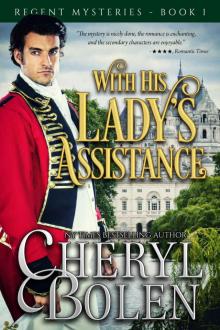 With His Lady's Assistance (The Regent Mysteries Book 1)
With His Lady's Assistance (The Regent Mysteries Book 1)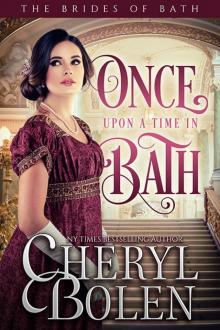 Once Upon a Time in Bath
Once Upon a Time in Bath One Room at the Inn (The Lords of Eton Book 4)
One Room at the Inn (The Lords of Eton Book 4)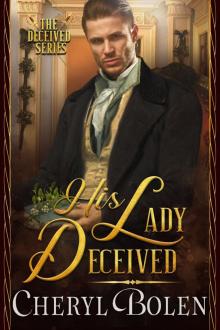 His Lady Deceived
His Lady Deceived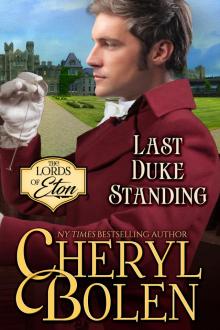 Last Duke Standing
Last Duke Standing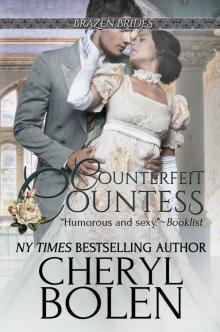 Counterfeit Countess: Brazen Brides, Book 1
Counterfeit Countess: Brazen Brides, Book 1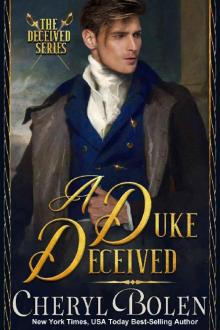 A Duke Deceived (The Deceived Series Book 1)
A Duke Deceived (The Deceived Series Book 1) An Egyptian Affair (The Regent Mysteries Book 4)
An Egyptian Affair (The Regent Mysteries Book 4) Winter Wishes: A Regency Christmas Anthology
Winter Wishes: A Regency Christmas Anthology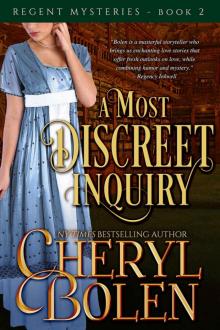 A Most Discreet Inquiry (The Regent Mysteries Book 2)
A Most Discreet Inquiry (The Regent Mysteries Book 2) The Portrait of Lady Wycliff
The Portrait of Lady Wycliff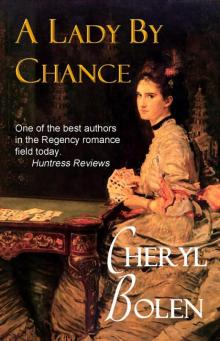 A Lady by Chance (Historical Regency Romance)
A Lady by Chance (Historical Regency Romance)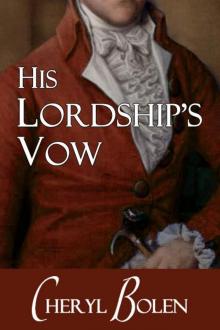 His Lordship's Vow (Regency Romance Short Novel)
His Lordship's Vow (Regency Romance Short Novel)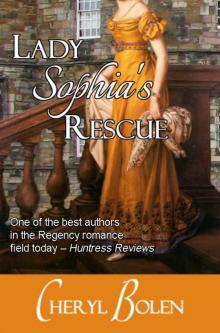 Lady Sophia's Rescue (Traditional Regency Romance)
Lady Sophia's Rescue (Traditional Regency Romance) A Birmingham Family Christmas
A Birmingham Family Christmas Oh What A (Wedding) Night (Brazen Brides #3)
Oh What A (Wedding) Night (Brazen Brides #3) A Christmas In Bath
A Christmas In Bath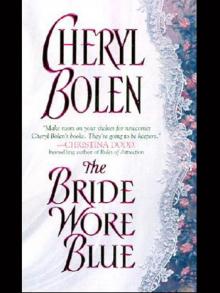 THE BRIDE WORE BLUE
THE BRIDE WORE BLUE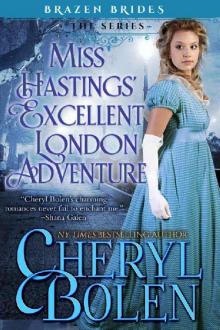 Miss Hastings' Excellent London Adventure (Brazen Brides Book 4)
Miss Hastings' Excellent London Adventure (Brazen Brides Book 4)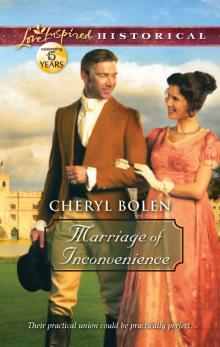 Marriage of Inconvenience
Marriage of Inconvenience Ex-Spinster by Christmas: House of Haverstock, Book 4
Ex-Spinster by Christmas: House of Haverstock, Book 4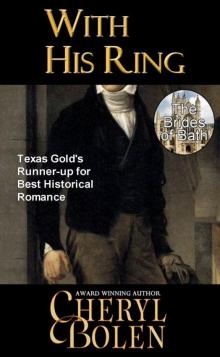 With His Ring (Brides of Bath Book 2)
With His Ring (Brides of Bath Book 2)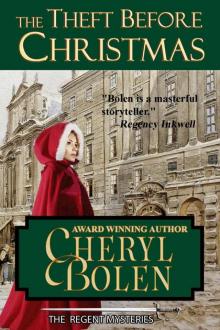 The Theft Before Christmas (The Regent Mysteries)
The Theft Before Christmas (The Regent Mysteries)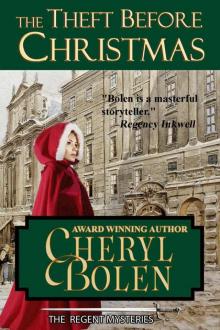 The Theft Before Christmas
The Theft Before Christmas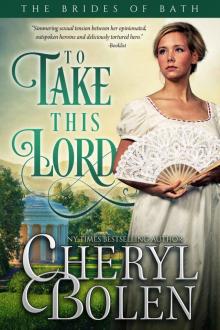 To Take This Lord (The Brides of Bath Book 4)
To Take This Lord (The Brides of Bath Book 4)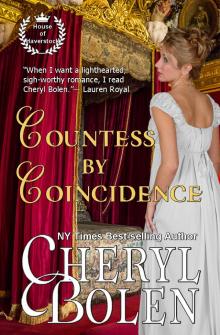 Countess by Coincidence
Countess by Coincidence Captivated by His Kiss: A Limited Edition Boxed Set of Seven Regency Romances
Captivated by His Kiss: A Limited Edition Boxed Set of Seven Regency Romances A Birmingham Family Christmas (Brazen Brides Book 5)
A Birmingham Family Christmas (Brazen Brides Book 5)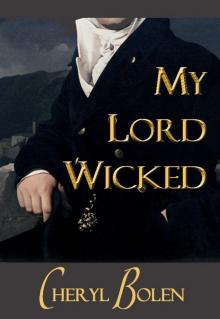 My Lord Wicked (Historical Regency Romance)
My Lord Wicked (Historical Regency Romance)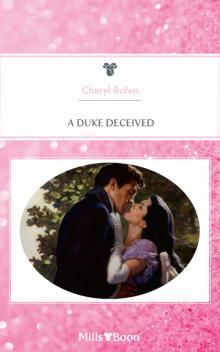 A Duke Deceived
A Duke Deceived The Earl, the Vow, and the Plain Jane
The Earl, the Vow, and the Plain Jane The Bride's Secret
The Bride's Secret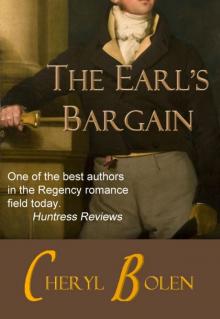 The Earl's Bargain (Historical Regency Romance)
The Earl's Bargain (Historical Regency Romance) Rebels, Rakes & Rogues
Rebels, Rakes & Rogues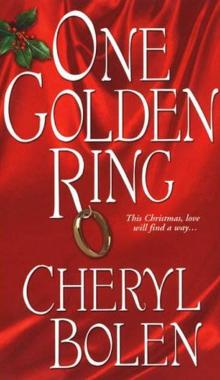 One Golden Ring
One Golden Ring